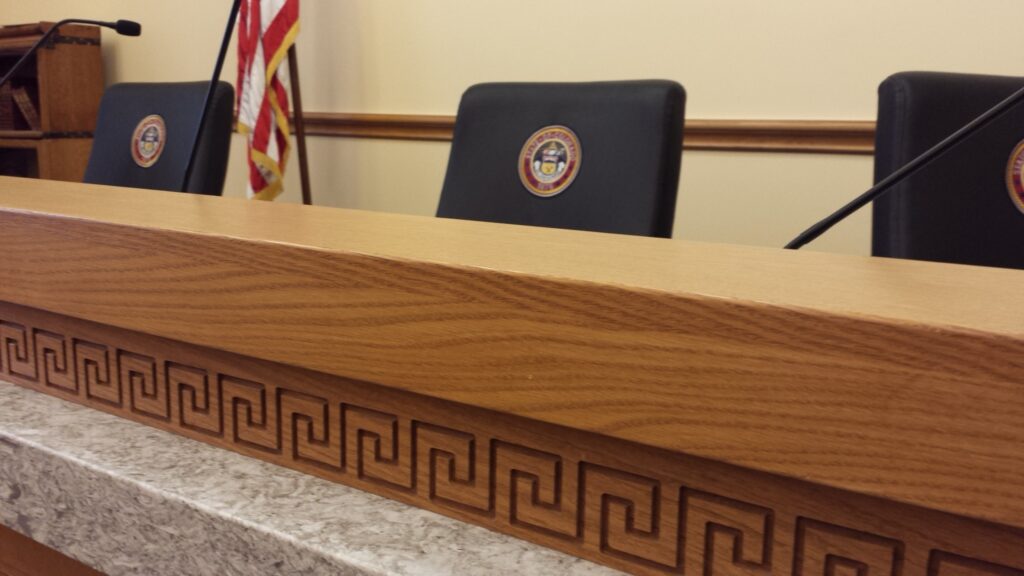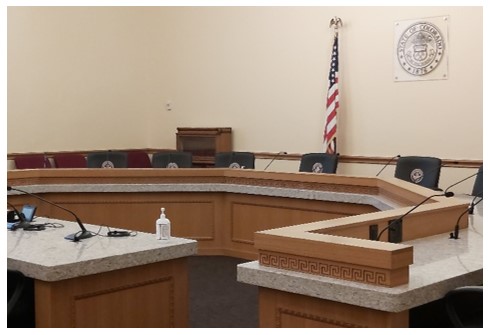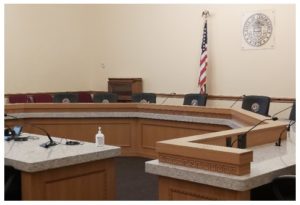
by Patti Dahlberg and Yelana Love
The Colorado Commission on Uniform State Laws (CCUSL) is Colorado’s delegation to the national Uniform Law Commission (ULC). The ULC is composed of more than 300 commissioners, who are appointed by each state, the District of Columbia, the U.S. Virgin Islands, and Puerto Rico. The CCUSL meets each year to identify a preliminary legislative agenda of approved uniform acts for potential introduction in Colorado. The CCUSL then typically hosts two or three public meetings at the State Capitol to discuss its proposed legislation, listen to interested parties, and finalize its legislative agenda. The CCUSL sends advance notice of the meetings held in the Capitol to interested parties, posts meeting information on the CCUSL page on the General Assembly website, encourages public testimony at the meetings, and broadcasts the meetings over the internet.
The CCUSL held meetings to discuss its 2026 legislative agenda on November 12, 2025, December 12, 2025, and January 13, 2026. The Commission approved three commission bills for introduction during the 2026 legislative session – two bills to enact uniform acts and one bill to add language to the previously adopted Uniform Community Property Disposition at Death Act. The three Colorado commission bills approved for introduction during the 2026 legislative session are:
Uniform Assignment for Benefit of Creditors Act. An assignment for benefit of creditors (ABC) is a voluntary, debtor-initiated state law alternative to the bankruptcy process, state receiverships, and voluntary workouts. An assignment is a liquidation procedure in which the “assignor” voluntarily assigns all of its assets to an “assignee,” a fiduciary, which liquidates the assets and distributes the proceeds to the assignor’s creditors. The assignment operates through the creation of a fiduciary relationship with the assignor’s creditors as the beneficiaries. The Uniform Assignment for the Benefit of Creditors Act is intended to provide greater clarity and consistency to the assignment process. The act provides for a streamlined assignment process, allowing states to modernize their assignment statutes and codify aspects of common law. It sets out a straightforward process for commencing and completing an assignment and provides a scheme for distributions to the assignor’s creditors. It lays out the duties and powers of the assignor and assignee, a process for allowing and disputing claims, and limitations on liability for the assignor and assignee.
Uniform Mortgage Modification Act. The parties to a mortgage often agree to modify the terms of the mortgage loan or other obligation secured by the mortgage after the initial transaction is completed. However, the common law is not clear on the issue of whether the modification of a mortgage loan or other obligation secured by a mortgage affects the priority of the mortgage against junior interest holders. This lack of clarity in the law causes delay and unnecessary expense for borrowers and, in some cases, may mean that a loan is foreclosed rather than modified. The Uniform Mortgage Modification Act is meant to resolve problems and reduce uncertainty by establishing several categories of safe harbor modifications that can be made to recorded mortgages and secured obligations and outlining the implications of each type of modification. Permissible modifications under the act include changes to maturity dates, interest rates, capitalization or payment schedules, escrow or reserve requirements, and other changes that do not affect the priority of junior interest holders or are not materially prejudicial. This act aims to reduce costs and create straightforward alternatives to foreclosure when possible.
Uniform Community Property Disposition at Death Act. Community property acquired by a married couple retains its character as community property even when the couple relocates to reside in a non-community property state. This result creates potential distribution problems at the death of the first spouse but also creates potential estate planning opportunities. However, the probate court in a non-community property state may not recognize the status of community property in a decedent’s estate. The Uniform Community Property Disposition at Death Act provides clear default rules to ensure the proper disposition of community property in any state. When this uniform act was enacted in 2023 some uniform language was inadvertently left out of the Colorado bill. This year’s commission bill adds the omitted uniform language into the Colorado statutes.





